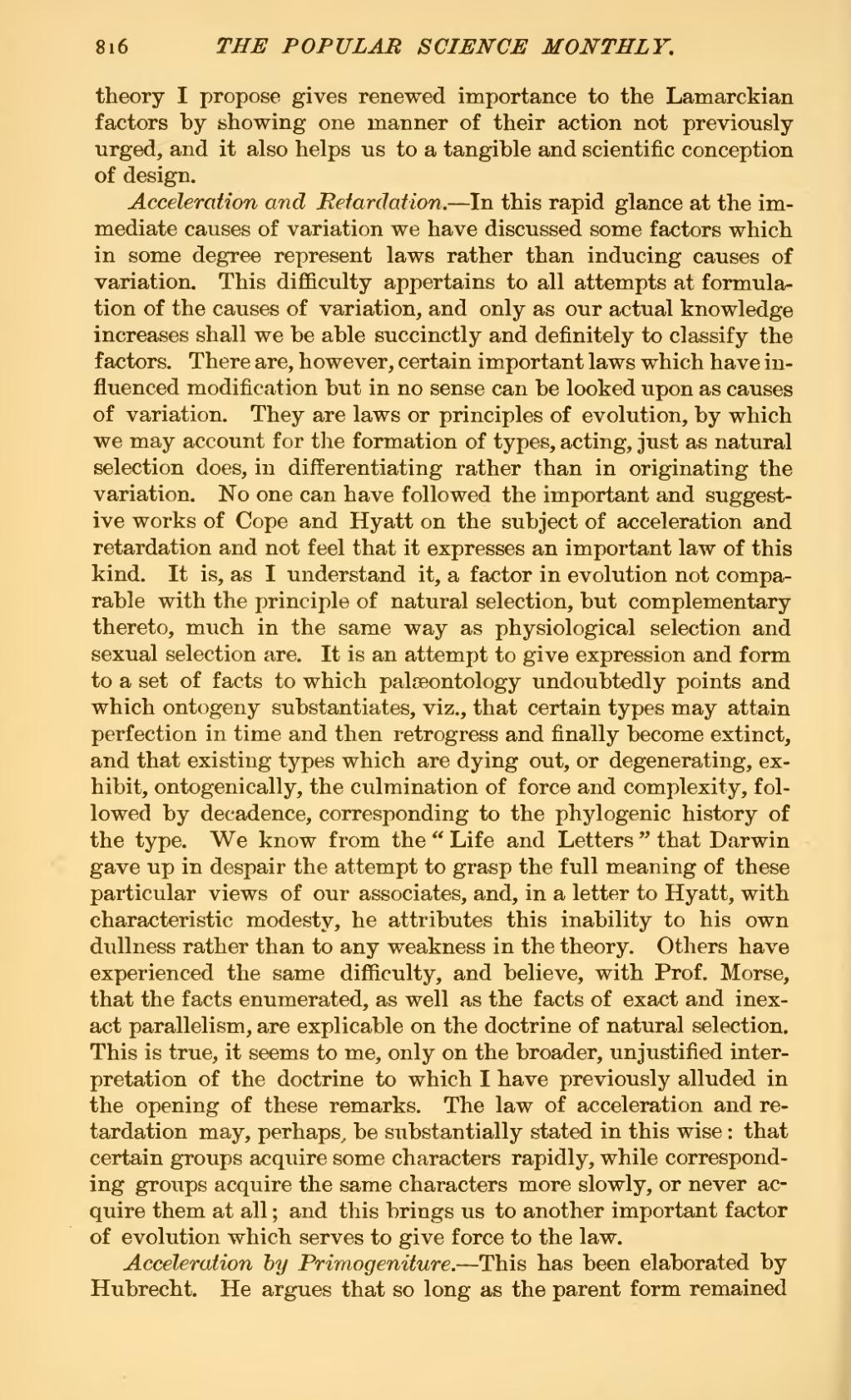theory I propose gives renewed importance to the Lamarckian factors by showing one manner of their action not previously urged, and it also helps us to a tangible and scientific conception of design.
Acceleration and Retardation.—In this rapid glance at the immediate causes of variation we have discussed some factors which in some degree represent laws rather than inducing causes of variation. This difficulty appertains to all attempts at formulation of the causes of variation, and only as our actual knowledge increases shall we be able succinctly and definitely to classify the factors. There are, however, certain important laws which have influenced modification but in no sense can be looked upon as causes of variation. They are laws or principles of evolution, by which we may account for the formation of types, acting, just as natural selection does, in differentiating rather than in originating the variation. No one can have followed the important and suggestive works of Cope and Hyatt on the subject of acceleration and retardation and not feel that it expresses an important law of this kind. It is, as I understand it, a factor in evolution not comparable with the principle of natural selection, but complementary thereto, much in the same way as physiological selection and sexual selection are. It is an attempt to give expression and form to a set of facts to which palæontology undoubtedly points and which ontogeny substantiates, viz., that certain types may attain perfection in time and then retrogress and finally become extinct, and that existing types which are dying out, or degenerating, exhibit, ontogenically, the culmination of force and complexity, followed by decadence, corresponding to the phylogenic history of the type. We know from the "Life and Letters" that Darwin gave up in despair the attempt to grasp the full meaning of these particular views of our associates, and, in a letter to Hyatt, with characteristic modesty, he attributes this inability to his own dullness rather than to any weakness in the theory. Others have experienced the same difficulty, and believe, with Prof. Morse, that the facts enumerated, as well as the facts of exact and inexact parallelism, are explicable on the doctrine of natural selection. This is true, it seems to me, only on the broader, unjustified interpretation of the doctrine to which I have previously alluded in the opening of these remarks. The law of acceleration and retardation may, perhaps be substantially stated in this wise: that certain groups acquire some characters rapidly, while corresponding groups acquire the same characters more slowly, or never acquire them at all; and this brings us to another important factor of evolution which serves to give force to the law.
Acceleration by Primogeniture.—This has been elaborated by Hubrecht. He argues that so long as the parent form remained

